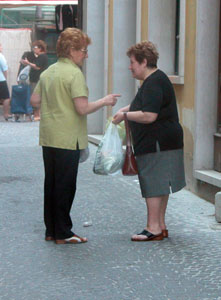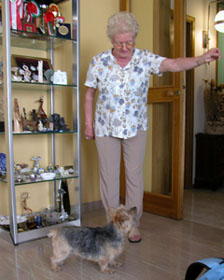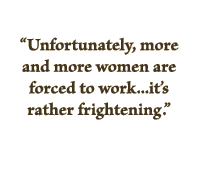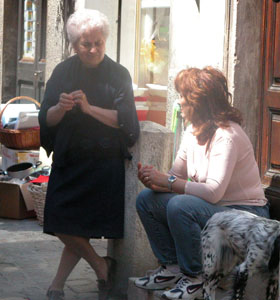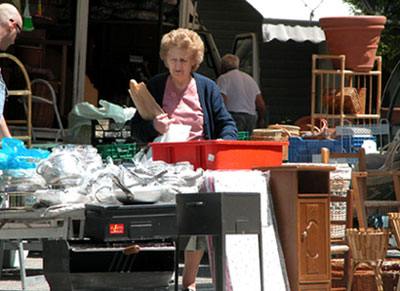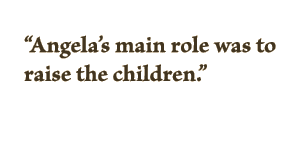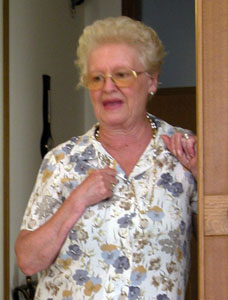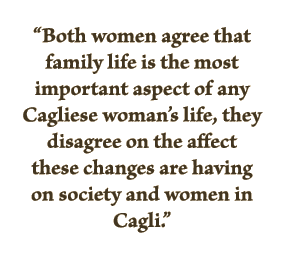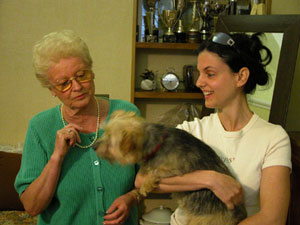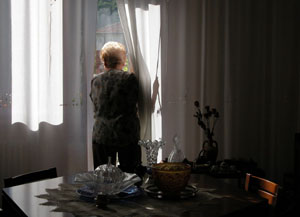 |
|
 |

| Until 15 years ago, women in Cagli held a traditional role as Casalinga, or homemakers. Often forced to give up careers so that their husbands could work, many were forced into cooking, cleaning, and raising the children, said Angela Corradi. Today, women in Cagli are taking greater roles in their own education and pursuing careers. They are putting off conventional family life—but only until they are able to achieve a balance between working and raising children—concentrating on personal development in education and a career, said Angela’s daughter, Silvia. This change indicates new roles for women in their household/family and is attributed to their desire for education and careers. “I loved my job as an elementary school teacher but was anxious to have children of my own,” Angela said. She left teaching in 1961 when their first child, Paola, was born. They now have two other children, Chara, 30, and Silvia, 35. As a result of Paul’s odd shifts, Angela’s main role was to raise the children. She could have worked outside the home as many of her friends did—as bakers, florists, and cleaners—but her husband made plenty of money to support the family. Angela would get up early and help her children get dressed for school. Three days a week she had a woman help her with cleaning and other household work. “I had the same woman help me for 35 years. … She still waters my plants when we’re on vacation,” she said. Angela spent her mornings taking the children to school and then daily grocery shopping in town. She would return home, play with Eli (the family dog), and begin preparing il pranzo, the main meal for Italians between 1 p.m. and 4 p.m. She said she loves to cook for her family, and finds it very rewarding to prepare a delicious meal for them.
But she failed to find meaning in her job working for an information systems technology company because she was confined to an office. She tried the national teaching test again and passed. Silvia is “running later” than her friends who have husbands and children. She is still not married, though she said she has been in love with the same man for 15 years. They plan on marrying and starting a family within the next year. Rather than jumping into marriage, Silvia said she wants to work and travel. “I won’t be able to do these things once I have children since they must become my number-one priority,” she said. In Cagli nothing comes before family. Though both women agree that family is the most important aspect of any Cagliese woman’s life, they disagree on the affect these changes are having on society and women in Cagli. The attitude toward and role of women in Cagli is changing, they said. Cagliesi women are now freer to wear the clothes they want, and more inclined to pursue an education and have a career of their own. Parents in Cagli are beginning to give their daughters independence at an earlier age, enabling them to have greater control of their lives. An increasing number of women are working and raising families at the same time, even though their families may not need the money, the Corradi agreed. Mothers in Cagli are using babysitters or nannies more and relying less on their relatives to raise the children while they work.
“I’m afraid that families won’t be as close as they once were,” she said. Silvia sees things a bit differently. She said that Cagli is connected to the changes taking place in larger cities such as Rome and Milan. Women in these cities are working full-time jobs and trying to raise their children at the same time. This she feels is dangerous: “As a teacher, I can notice a difference between the children who come from large cities and those from small towns like Cagli,” she said. “Children from the larger cities are not as well-behaved and more stressed then children from Cagli. I can see this as a reflection of their mothers’ busy lives … struggling to keep a full time job and raise her kids.”
Silvia recognizes that Cagli is a traditional town and loves its lifestyle. Yet she said she is excited about the changes and will remain watchful that she holds true to her traditional upbringing. Silvia hopes that the role of women in Cagli will stay this way. She said she sees it as perfect because she can do whatever she wants without the strict rules of her parents. “In the old days, even at 35, I would have had to ask them permission about everything, especially since I am not yet married,” she said. “It’s great to be alive…I can have a perfect balance between work and family. It’s a good time to be a woman in Cagli!”
|
“Traditionally women have served as Casalinga. They were in charge of raising the family and keeping the home tidy.” Said Lucia Braccini, “Today, however, women are actively pursuing educations and careers, deferring family life till later.” An example of such a traditional woman is Angela. Originally from Pergola, a small town 15 kilometers outside Cagli, she married Paul Corradi, a television broadcaster, in 1959, and they settled in Pergola. Angela was an elementary school teacher, following the footsteps of her mother, while her husband traveled to Rome and Milan with his job. Paul decided he wanted to stop traveling and relocated to Cagli, where he worked at the new regional television station.
As is customary in an Italian household, parents care for their children, even as they prepare to leave for college. “I’m still the mom. … I’ll always be the mom, and my family is number one,” Angela said. Even though her youngest daughter, Chara, is still living at home, Angela is prepared to take care of her even after she leaves for college in the fall. She said it is customary in Cagli for parents to help their children buy a home and make sure they are financially secure. Until Chara is fully independent, she can count on consulting her mother before making any decisions regarding her social and academic life. Silvia is the middle child. Just like her mother, she is an elementary school teacher, though she took a different road to get there. “I did not pass the national test necessary for all training elementary school teachers and decided to study information systems technologies,” Silvia explained.
Angela is worried about these changes, especially when husbands strongly encourage their wives to work outside the home. “Unfortunately, more and more women are forced to work, even if their family doesn’t need the money … it’s rather frightening,” she said. She sees the role of women getting harder because they are expected to work and raise a family. With the increasing use of the nanny or babysitter, Angela said, she fears that this could change the family dynamic.
In Cagli the changes are not quite as drastic and have opened up many more opportunities for women. “I was not forced to marry and have kids right away,” Silvia explains. “My parents allowed me to get an education and experience a job. … I was allowed to do what I wanted. This is something new for the women in Cagli. … It’s wonderful.” And it certainly is wonderful for Silvia. She plans on keeping her job as an elementary school teacher, working between 9 a.m. and noon and raising her own children. “The hours of teaching elementary school are perfect for me. They allow me to keep my job and maintain close to my family,” she said. “I am excited!”
|
||||||||||||||||||

